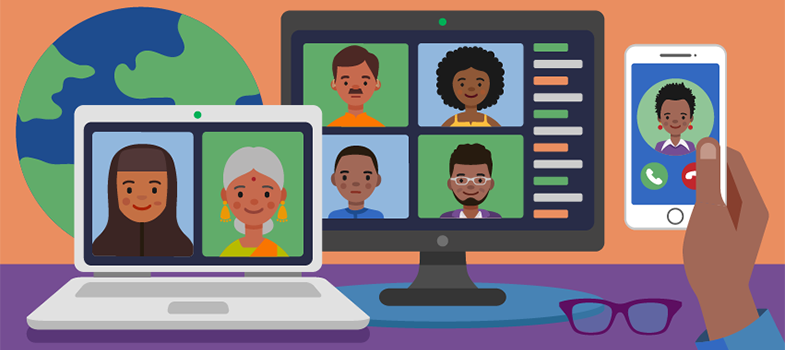Welcome to Take your training online
At the beginning of the Covid-19 pandemic, many charities and NGOs moved their training online, often working at high speed and with little previous experience of running online training. Staff and volunteers faced very steep learning curves and achieved astonishing results in very challenging circumstances.
In many parts of the world, organisations expect to train exclusively online for several years, due to continuing restrictions. Some organisations also plan to continue to use online training once face-to-face training is possible again because of the benefits it brings in terms of capacity for scale-up and increased accessibility for some volunteers, staff and user groups.
This course aims to help practitioners improve the online training they developed at speed, and to develop new resources in the future.
You are likely to get the most out of this course if you:
- Are used to running training sessions face-to-face but now wish to move some of your training online.
- Have an existing or planned piece of training that you want to move online.
- Are working for a charity, non-governmental agency or similar third sector organisation.
- Are not currently responsible for training but are hoping to move into this kind of role.
This course focuses on what is distinctive to delivering training online and how you can improve the quality of online training. In particular, these resources aim to help trainers to move beyond webinar and online lecture styles of training, towards the more interactive styles of training that many usually use in face-to-face settings. It does not go into detail about how to use particular online tools, both because this information can easily be found elsewhere and also because new tools are constantly being introduced. This course is also not designed to cover pedagogic principles or how to design learning resources more broadly.
The course was developed by a team from The Open University with input and feedback from trainers and managers from charities and NGOs in Europe, Asia and Africa.
The course consists of five main sections that can be studied independently and in any order:
- Knowing your learners.
- Different activities for learning.
- Online communication and collaboration.
- Off the shelf: using existing online materials.
- Making your own: creating and adapting content.
This course is free and gives you the opportunity to earn a Statement of Participation (SoP) in recognition of your learning. To access the course materials and collect the SoP, you need to enrol. If you already have an Open University account, you need to sign in before you enrol. If you do not have an Open University account, it's easy to create one. Simply click 'Sign up / Sign in' above or 'Create an account / sign in' below and complete the details requested.
Once you've signed in, return to this page and refresh it. The refresh button can be found in your web browser and is often an arrow in a circle, pointing to its tail  . If you can't find it, press 'Ctrl' and 'R' together on your keyboard. This will update your status so you can then enrol. Click on 'Enrol now' and start the course!
. If you can't find it, press 'Ctrl' and 'R' together on your keyboard. This will update your status so you can then enrol. Click on 'Enrol now' and start the course!
This course has been funded by UK aid from the UK government, as part of the ACCESS Consortium led by the International Planned Parenthood Federation. The views expressed do not necessarily reflect the UK government’s official policies or those of all Consortium partners.
Additional funding was provided by The Open University's Quality-Related Global Challenges Research Fund (GCRF) allocation from Research England.

